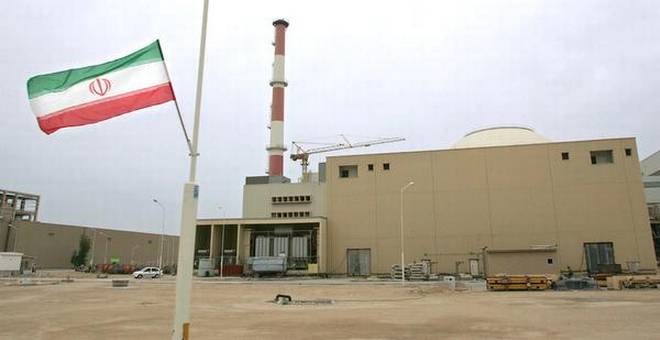
A pre-election strike on Iran? -Tabish Khair
Is Iran being set up for a ‘limited scale conflict’ just before the U.S. presidential election? This is a suspicion that might be far from the minds of North and West European leaders, hailing from countries that, since World War II, have been sceptical of war, especially in their own neighbourhoods. But Iran is not really in their neighbourhood. Will countries like Germany, France or Brexiting-U.K. have the conviction or coherence to stand up for Iran, which has been pushed into a corner by the one-sided withdrawal of Donald Trump’s U.S. from the international nuclear deal brokered under former U.S. President Barack Obama? It remains one of the great ironies of politics today that Mr. Trump is such good friends with North Korea, which seems to have no intention of abandoning its nuclear weapons, and so belligerent towards Iran, which did sign an international nuclear deal!
Liberal Europe might have trouble imagining the effect of a ‘limited scale conflict’ on a national electorate just before elections, but surely we Indians have larger imaginations? I am not saying that Mr. Trump and his publicity troops are planning a ‘hot’, instead of the currently ‘cold’, conflict with Iran. What I am saying is that there are very good ‘factors’ which may lead to it.
Demonstration of ‘greatness’
Mr. Trump needs a ‘patriotic’ surge to be certain of victory in the coming presidential election, and he is a politician not averse to chest-thumping heroics at the cost of other people’s sons. Not surprisingly, this year marked the first 4th of July celebration in recent memory that was highly politicised and in which the U.S. armed forces were clearly inserted into the current Republican slogan of ‘Make America Great Again’. It was also a far more military show than in the past. This overlap of the ‘greatness’ of the American military — U.S. military expenditure in 2018 was around $650 billion (China was second with $250, and Saudi Arabia and India, hurrah, were third and fourth with about $67 each) — with the political rhetoric of ‘greatness’ pursued by Mr. Trump’s Republicans can lead to a ‘demonstration’ of ‘greatness’ on Iran.
Such a ‘demonstration’ is likely in other ways too. For instance, the U.S.’s two best friends — Saudi Arabia and Israel — clearly want Iran dismantled as much as possible. The rhetoric of ‘Islamist terror’ can be used to effect this, particularly because most Americans cannot distinguish between Shia and Sunni Muslims, and hence do not know that the hated Islamic State and al Qaeda are Sunni, while Iran is Shia.
To this will be added a certain section of the liberal voice in the ‘free’ West: people who have good reasons to dislike the clerical regime in Iran, people who would like to see Iran become democratic. While their reasons are good, many of them are too idealistic or too removed from Iran to think of what might happen once the conflict begins — and escalates. Perhaps I am being pessimistic, but I have seen a number of countries go to pieces under the flag of ‘freedom’ in recent years: Iraq, Libya, Syria, Sudan. In every case, there was hope and many good arguments for a change of regime. In every case, the hopes have been belied and, looking back, the earlier status quo seems to have been a relative mercy.
Moreover, North and West European states are bogged down in a post-Brexit situation, have highly developed but stagnant economies, and pacifist but increasingly parochial electorates. They would not be willing to do much to stop a conflict. Given the fact that the two biggest industries in the world — weapons and oil — might have vested interests in a ‘limited conflict’ in Iran, and these industries are not voiceless in Europe either, one can also expect the worst.
Finally, the ‘national ethos’ of Iran will contribute to it too. Iran is one of the major nations of the world, the core of an ancient civilisation. Many Iranians would be too proud to eat humble pie in the face of American might. They are likely to be encouraged into war-like sentiments by the more radical Iranian mullahs, with their own Islamic suspicion of the U.S. and the West. The ability of the religious to believe that God will intervene on their behalf is not a reassuring element either.
A different matter
The likelihood of a staged conflict just before the U.S. presidential election getting out of hand ought to worry India. A conflict between the U.S. and Iran would not be like a conflict between India and Pakistan, which are neighbours. They can inflict some damage on each other. And the only likelihood — victory by India, which is the greater military power — would leave matters unresolved for the victor: India will not only have to control much of hostile captured territory but still be exposed to ‘Islamist’ attacks from other Muslim countries, because even beyond Pakistan there lie other Muslim nations and regions. Incidentally, these other neighbours do not desire major trouble between India and Pakistan; they prefer the current status quo. There will also be no ‘global’ or ‘liberal’ cheerleading for either India or Pakistan in the case of a conflict.
But a purportedly ‘limited’ attack by the U.S. on Iran is a different matter: the U.S. would remain largely unaffected, because it is too far away and far too strong. Iran has neighbours — not just Saudi Arabia and Israel — who would love to see it bombed a few decades back into the past. And there will even be a degree of ‘global’ and ‘liberal’ cheerleading for a presumed ‘return to democracy’ in Iran. The prospects, to say the least, are worrying.
Tabish Khair is an Indian novelist and academic who teaches in Denmark.
* Published in the Hindu


